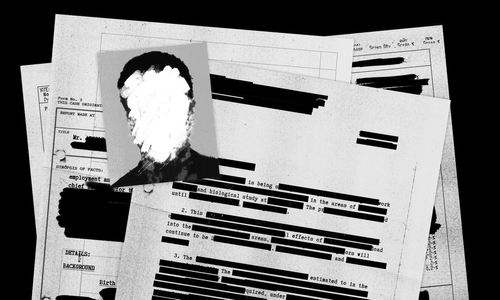The FBI’s refusal to release records related to the 2016 murder of DNC staffer Seth Rich has sparked a fierce debate surrounding government transparency. Lawyer Ty Clevenger criticizes the agency’s secrecy, foreseeing significant fallout. This situation highlights the ongoing struggle to balance national security with public disclosure.
FBI Withholds Seth Rich Records
Attorney Ty Clevenger has been actively seeking records related to Seth Rich’s 2016 murder through a Freedom of Information Act (FOIA) request. The FBI admitted to possessing Seth Rich’s laptop only after initial denials, yet continues to withhold metadata from Rich’s electronic devices. Instead of releasing the records, the FBI plans to provide a Vaughn index, outlining withheld files and the justifications for their secrecy.
FBI Refuses To Turn Over Seth Rich Murder Information
The FBI has once again blocked the release of records tied to the 2016 murder of DNC staffer Seth Rich, defying attorney Ty Clevenger’s FOIA request.
Clevenger, who has fought for years to uncover these documents, announced… pic.twitter.com/9oJshbLD99
— MAGA Resource (@MAGAResource) March 4, 2025
Clevenger demanded the release of these documents in February 2024, but the agency has resisted, citing security concerns. Clevenger also revealed the FBI’s failure to disclose parts of the CrowdStrike report on the alleged 2016 DNC hack. Such resistance from the FBI raises questions about the depth of their transparency and what may lie beneath the surface.
Legal Actions and Implications
The case, “Clevenger v. U.S. Department of Justice et al.,” was filed in the Eastern District of New York, Brooklyn, under case number 1:2018cv01568. Clevenger’s case highlights issues such as the failure to respond within statutory time limits and the adequacy of the FBI search. Despite the case concluding in 2020 with a Clerk’s judgment favoring the defendants, Clevenger remains committed to uncovering the truth.
You might want to sit down for this one…
According to Attorney @Ty_Clevenger, the DOJ & FBI is NOT going to allow the Seth Rich documents to be released to the public on March 10th, 2025 which is the date they were supposed to be unsealed.
It is unclear whether or not… pic.twitter.com/G0FNqh8I3g
— The Patriot Voice (@TPV_John) March 4, 2025
This case spotlighted well-known personalities like Kash Patel and AG Pam Bondi, who have voiced concerns about the broader ramifications of such secrecy. Their involvement suggests potential repercussions for the FBI’s FOIA office, influencing the agency’s operations and public perception.
Wider Debate on Government Transparency
This ongoing situation underscores a more profound debate about government accountability and the need for data transparency. The FBI’s continual policy of secrecy can erode public trust, urging citizens and officials to rethink the balance between national security interests and the people’s right to know.
In an era when transparency is necessary to maintain public confidence, government bodies’ reluctance to fully disclose information brings crucial dialogues about transparency and accountability to the fore. With Clevenger’s persistent efforts and the possible attention of influential figures, this case may become a turning point in the call for greater governmental transparency.
Sources:
https://www.thegatewaypundit.com/2025/03/kash-patel-pam-bondi-will-learn-about-this/
https://foiaproject.org/case_detail?title=on&style=foia&case_id=31538

